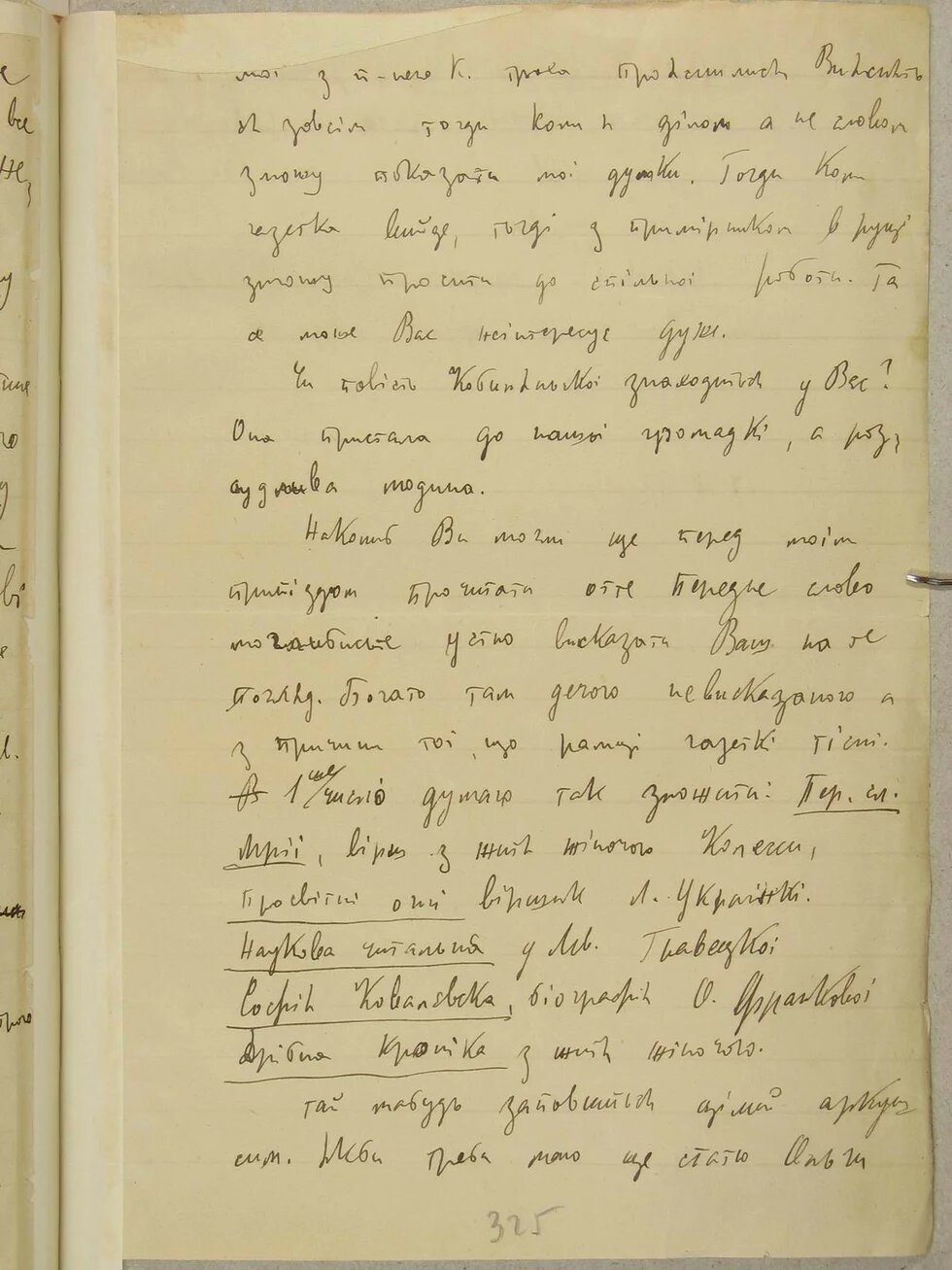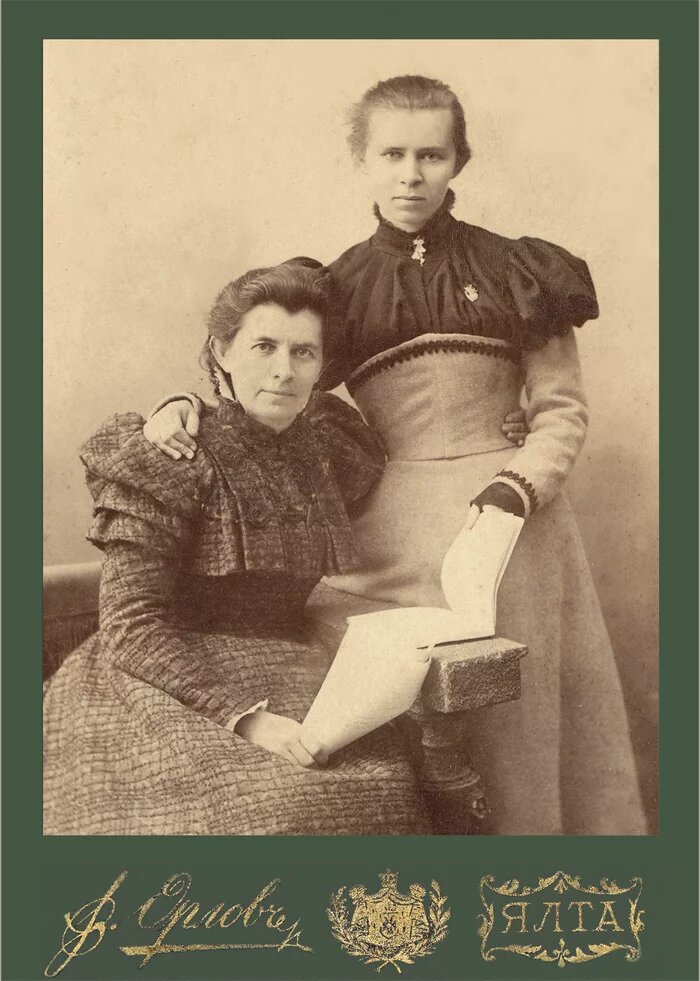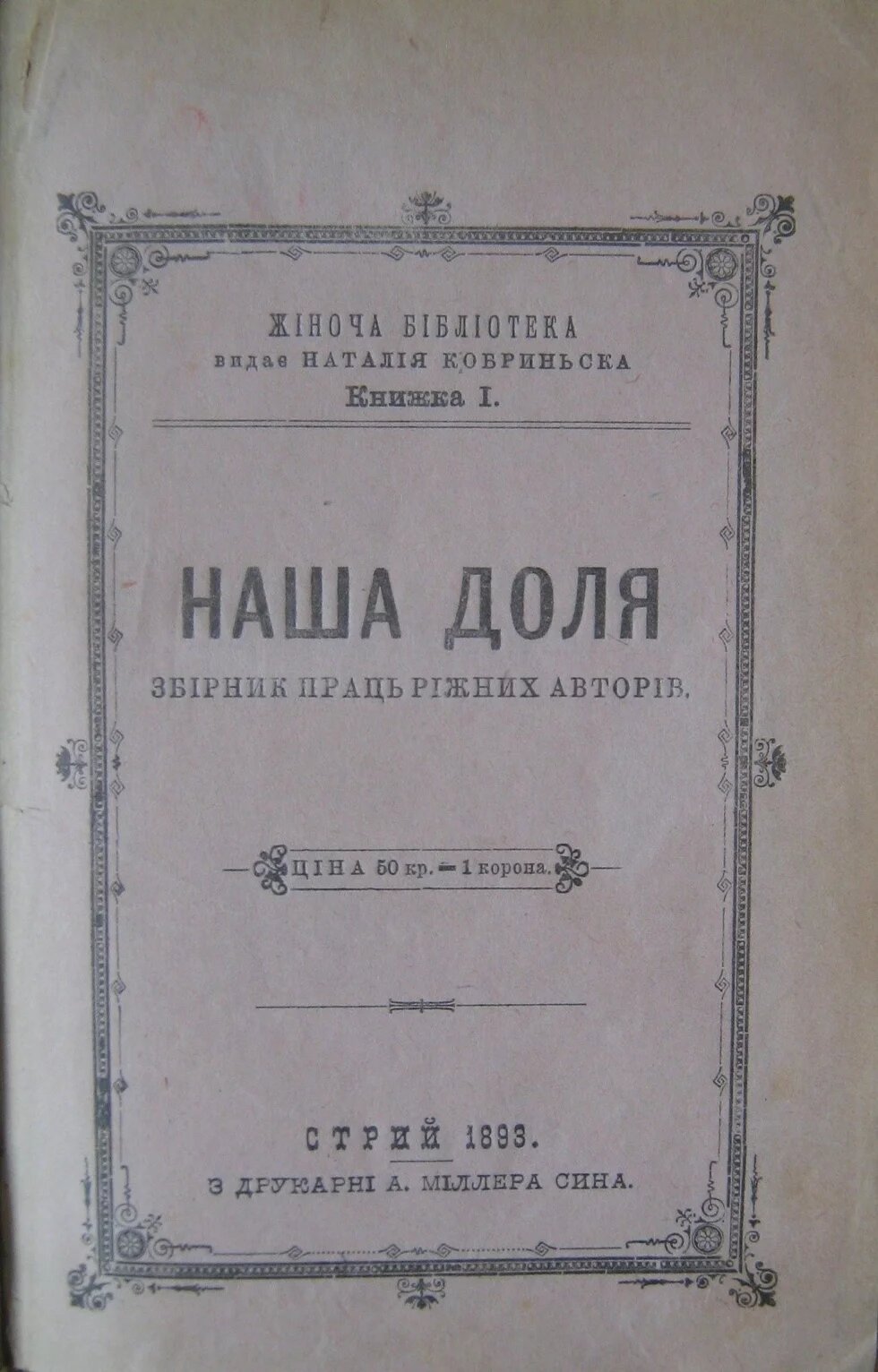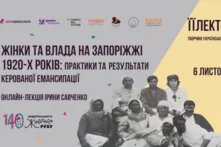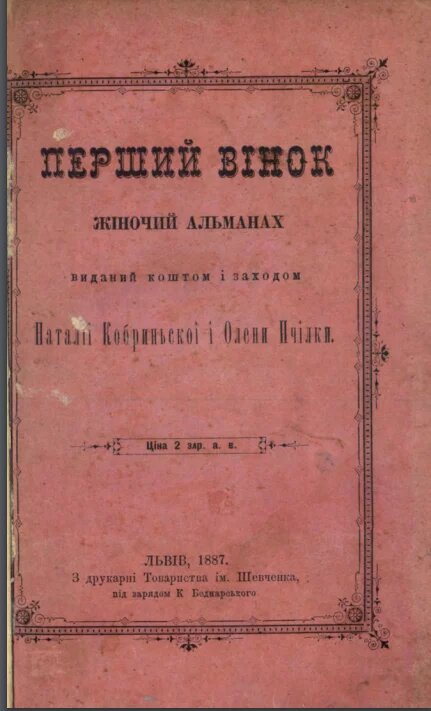
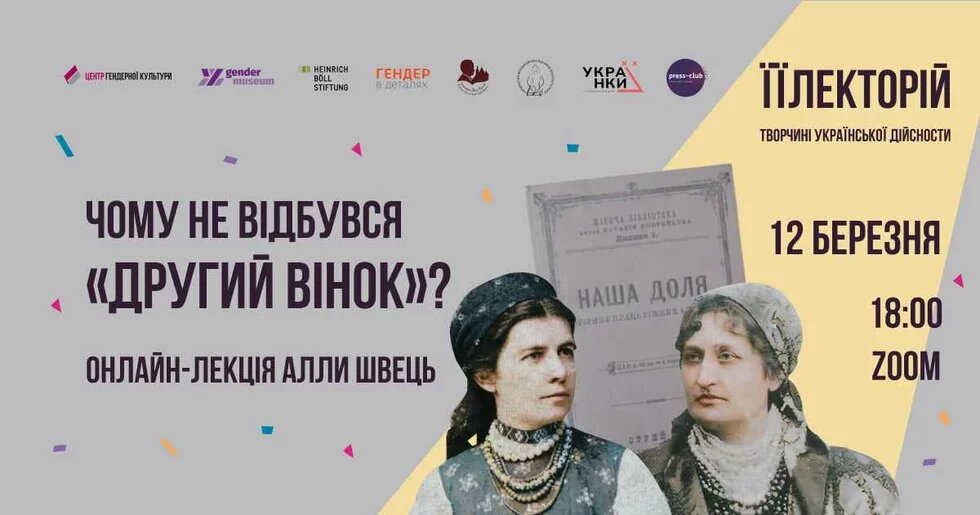
The "Pershyi Vinok" (First Wreath) almanac, which was published in 1887, became an important cultural event, a unification project, and a valuable artifact of the women's movement.
Although the publication was not a commercial success, its public outcry inspired women to take new publishing initiatives. This is how the idea of continuing the almanac tradition in the format of the “Druhyi Vinok” (Second Wreath) emerged. It met public expectations and resulted from specific agreements between the two editors. Many materials that for one reason or another were not included in "Pershyi Vinok" (The First Wreath), including works by Olha Kobylianska, were to be published in “Druhyi Vinok” (Second Wreath) this time. The idea of publishing the almanac was announced at a women's meeting in Stryi in 1891, and fundraising began.
However, Ivan Franko influenced the fate of this project by publishing a controversial article entitled “Almanac or Newspaper,” in which he argued against almanacs in favor of a much more economical “small newspaper” or “magazine.” Despite Natalia Kobrynska's opposition, Franko won over many authors of Galicia and Central Ukraine, especially Olena Pchilka. Subsequently, the discussion about the women's magazine turned into a backstage correspondence, which included Franko and his wife, Olesia Ozarkevych, Mykhailo Drahomanov, Olha Kobylyanska, Mykhailo Pavlyk, Olena Pchilka, Lesia Ukrainka, and Yevhenia Yaroshynska. Thus, behind Kobrynska’s back, a project for a new magazine emerged, which ruined her publishing plans and led to a conflict with many of her former associates and sisters.
Two of the authors of the First Wreath, Franko wife Olha, and Olesia Bazhanska (née Ozarkevych), were appointed editors of the new magazine.
Olena Pchilka again suggested the journal's name, “Equality”, and wrote the Foreword. An editorial committee was formed, and the first issue was even prepared. However, the journal never saw the light of day under either name. The main reasons for this were financial difficulties, the passivity of the contributors, and disagreement between the editors, who did not dare to sign the publication without Kobrynska’s participation.
Having emerged from the publishing dispute “almanac or newspaper,” after the failure of “Druhyi Vinok” (Second Wreath), Kobrynska chose a “middle way” between an almanac and a periodical and independently launched her series, “Women's Library”. Within its framework, under the title “Our Destiny,” she published three collections of “works by different authors” (Stryi, 1893; Lviv, 1895, 1896). They contained studies of the women's movement, fiction, and abstracts of the most famous works of modern European literature.
However, the project “Our Destiny” was not successful among contributors and was harshly criticized by Kobrynska former associates, such as Ivan Franko, Mykhailo Pavlyk, Mykhailo Hrushevsky, Osyp Makovei, and others. The only ones who supported this publication financially and morally were the couple, Panteleimon and Oleksandra Kulish.
The translation from Ukrainian was created with the help of DeepL.
